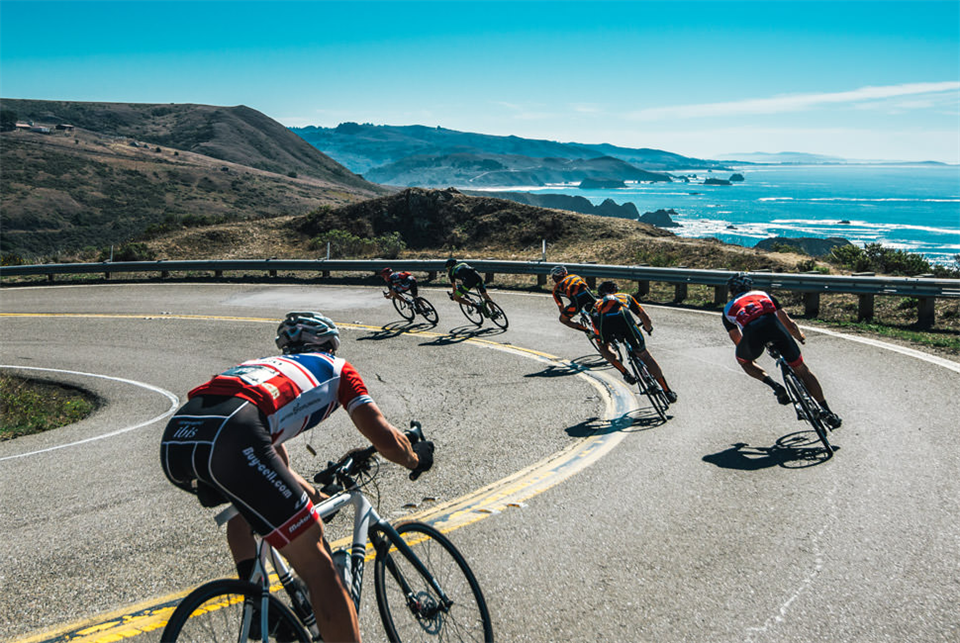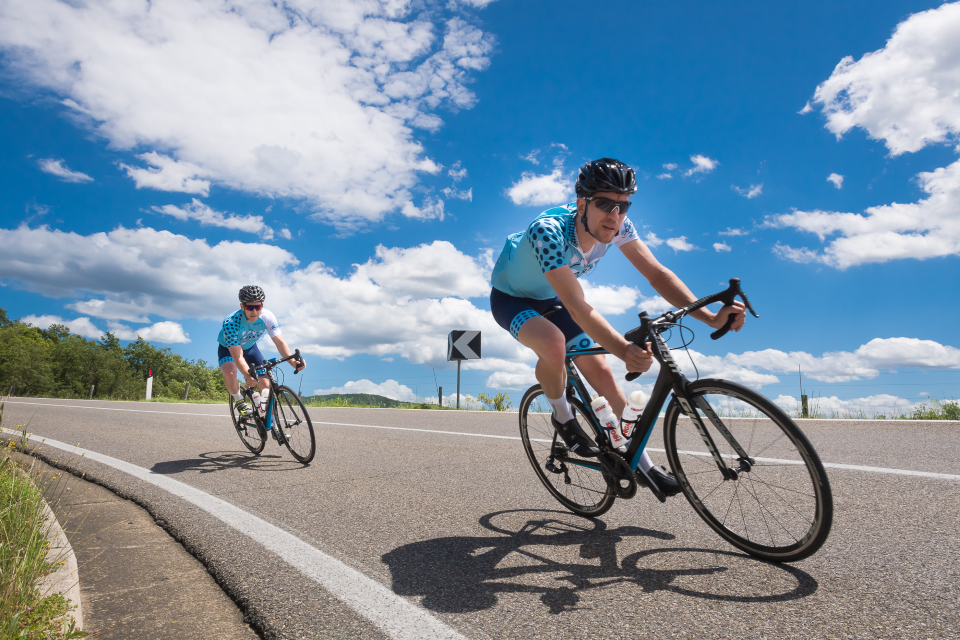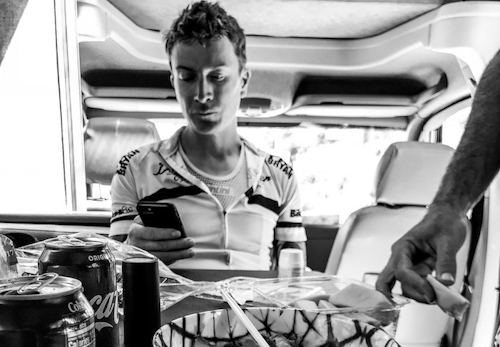Training for a multi-stage race like Le Tour de France
The pinnacle of endurance sports is competing in a multi-stage race, like Le Tour de France. This undertaking requires a conglomeration of almost infinite matches of geno- and phenotypes, physical skills, mental strength, gut health, and other factors
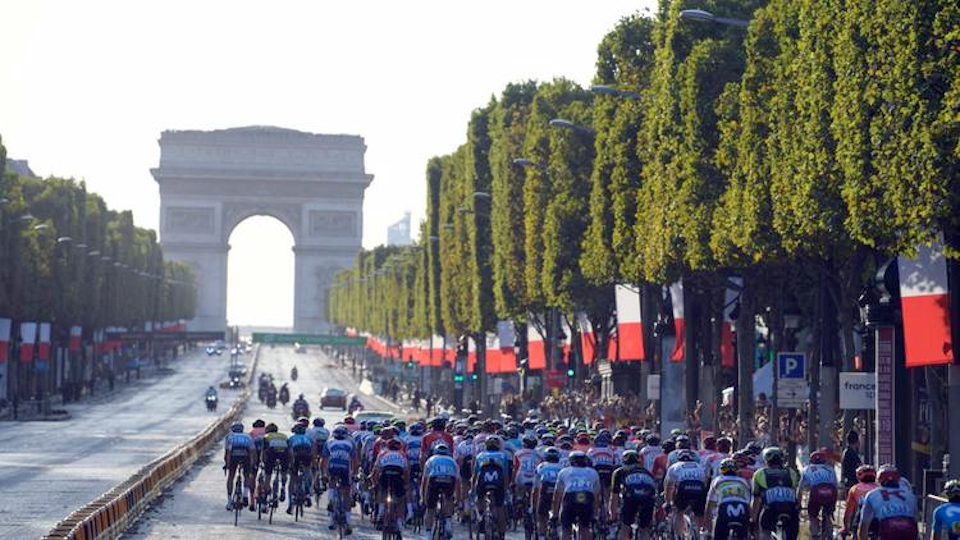
While the quasi-immortal humans who grace the start line need to have a lot of natural talent, hard work beats natural talent when natural talent doesn't work hard.
Training is vitally important.
Let's take a look at what it takes to prepare for a multi-stage race, breaking down the essential components that make this a reality.
Base Phase: The Foundation of Endurance
The first step in training for Le Tour de France is building a solid endurance base. This phase, often referred to as “base training,” is crucial for developing aerobic capacity and preparing the body for the intense workload ahead.
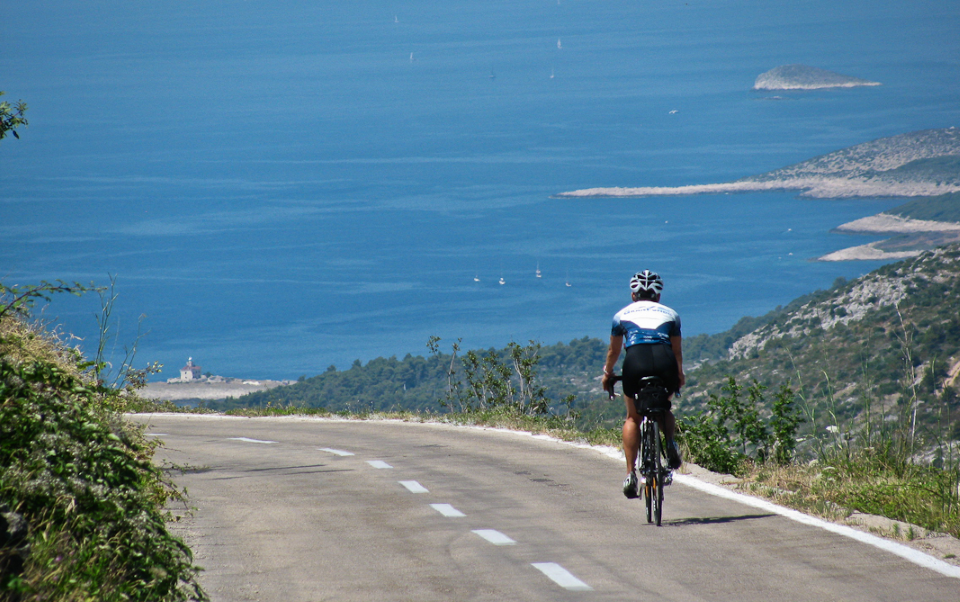
Long, steady rides
Aim for long rides at an easy to moderate pace. Depending on what your current fitness is, these rides should eventually be 4-6 hours, focusing on as much time in zone 2 as possible. If you are using power, focus on this and a good measure of progress is seeing your heart rate (input) lower for the same power (output) as you become more efficient.
Consistency over intensity
At this stage, consistency is key. Ride regularly, increasing the duration gradually to avoid overtraining and injury. Using a model such as Chronic WorkLoad (CWL) you can plot a logical progression from where you are to where you need to be. Then work backward to establish what sort of ramp rate you can recover from.
Nutrition and hydration
Proper fueling during these long rides is essential. Practice eating and drinking on the bike to keep energy levels stable and avoid bonking. Fasted training can be beneficial, but it is very easy to get this wrong.
Utilize this time to adapt your gut to eating large quantities on the bike. Find out how many grams of carbohydrates you can/need to eat per hour and what sources work best for your gut before your race.
Build Phase: Race-Specific Training
Once you have met your base-building targets, it is time to move into more specific multi-stage race training. This might depend on your goal for the multi-stage race: do you want to win overall (GC - General Classification), take a sprint stage, or perhaps even win a time trial?
Whereas in the base phase, you may have been working on general fitness and your weaknesses, the build phase is where your desired outcome has the biggest influence. You start to specify your training and strengthen your strengths.
Hill repeats
There will likely be a hill climb (or several) throughout a stage race. A smart move is to mirror the type of climbs you will face in the race. This helps your body get used to the intensity of the climbs you will be taking on. If these climbs aren’t available, doing hill repeats can help simulate these demands.
High-intensity intervals
Improve your anaerobic capacity with high-intensity interval training (HIIT). Short, intense efforts followed by brief recovery periods can simulate race conditions and improve overall power. For time trials, focus more on sustained power at or just below your TPO (Threshold Power Output, aka FTP). For a sprinter, go for very short maximal efforts, perhaps adding in some big geared efforts to develop muscular strength too.
Skill Development: Mastering the Art
Strong riding skills can be the difference between getting dropped on a descent, sprinting to the finish, or even avoiding a crash in the peloton.
Cornering drills
Practice cornering at different speeds and angles to improve your bike-handling skills. Smooth and efficient cornering can save valuable seconds in a race. Better yet, combine this with the last group riding to ensure you get the fastest line in a group.
Descending practice
Descending at high speeds requires confidence and skill. Find a safe descent and practice controlling your speed, braking, and taking the right lines. Having someone record you can be very useful as it is often very hard to judge your capability while having to place a lot of your attention on the fast descent.
Group riding
Join group rides to get accustomed to riding in a peloton. Learn how to draft effectively, communicate with other riders, and navigate through a pack. While not necessarily a problem for the professionals, this is one of the biggest failures in the amateur ranks and often the reason so many crashes happen in the lower categories of races.
Mental Prep: The Champion's Mindset
Physical training gets you to the start, mental training gets you to the finish. Developing a strong mindset helps keep you on track when motivation wanes or training starts to hurt. It is no surprise that to train for a multi-stage race, you will put your body through an incredible amount of stress. This stress hammers your brain too and makes it very easy for the intrusive “why” thoughts to accumulate. Spending a small amount of time developing your mentality is worth every second.
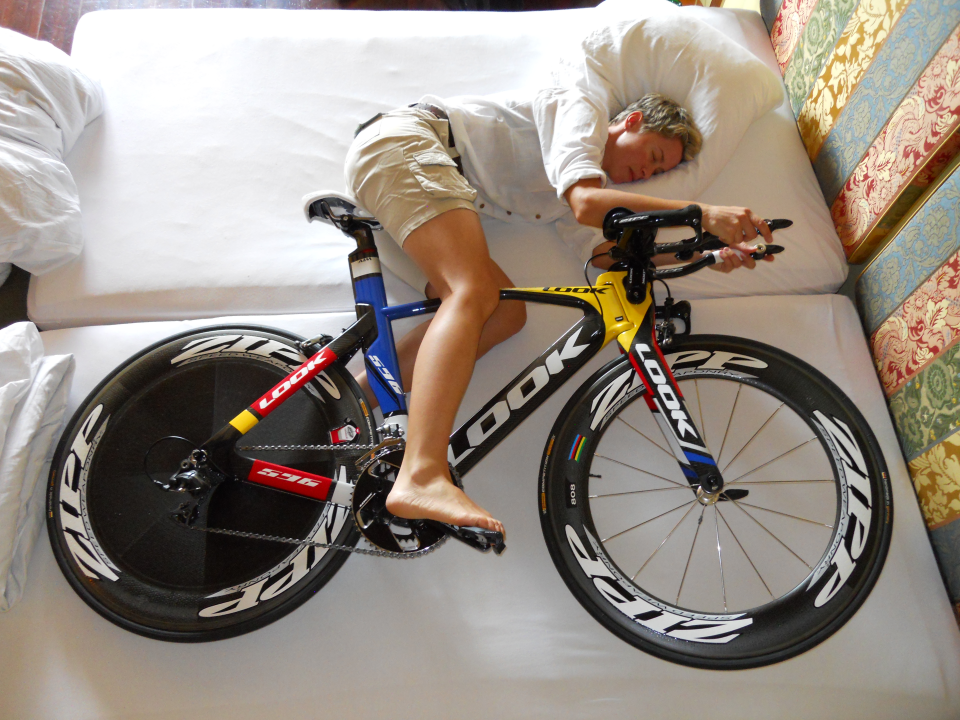
Visualization techniques
A great visualization exercise to do before every single training workout is to run through what you want to achieve. Visualize yourself riding strong, completing the workout as planned, and finishing in the cool-down feeling accomplished. This can be transferred to race day and boost confidence and mental preparedness.
Mindfulness and meditation
Incorporate mindfulness and meditation practices into your routine to manage stress and improve mental clarity. Most athletes who have committed to a meditation routine say that the training and racing don’t necessarily get any easier, but you react less to the pain and stress of it.
That is to say, there are less intrusive thoughts of quitting, less hyperventilating, and greater control over your body.
Recovery: The Unsung Hero
You won’t reap the benefits of your hard work in training if you are constantly overreaching or neglecting your recovery. Your body needs time to repair and, in time, will compensate and grow stronger.
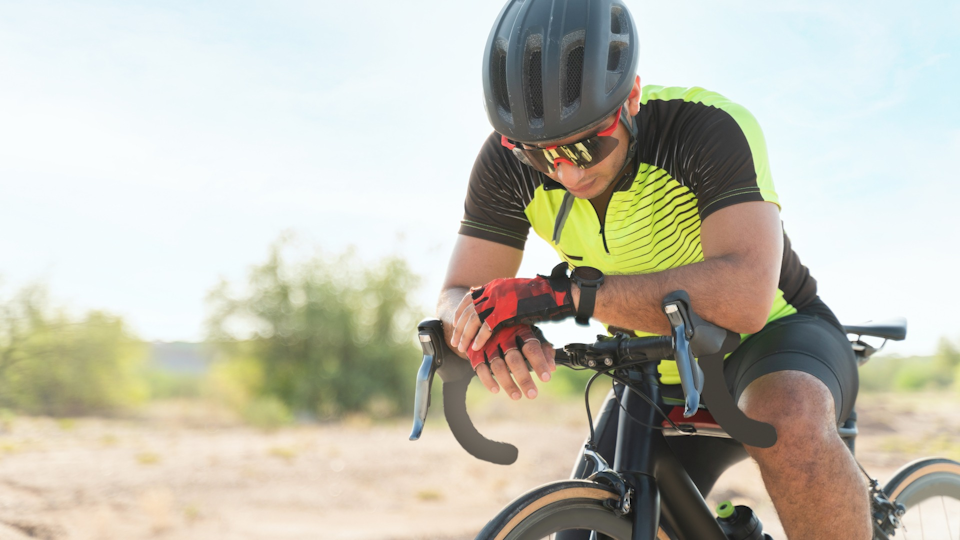
Rest days
Include regular rest days in your training plan to allow your body to recover fully. Using health metrics such as heart rate variability (HRV) can be useful in determining if you need to take an extra day off. One extra day off will never hurt your progression, but digging yourself into a hole you can’t get out of will end your season.
Sleep
While there are a lot of techniques, tools, and practices to aid recovery, quality sleep plays one of the biggest and most crucial roles in recovery and overall well-being. Standard sleep hygiene practices apply and don’t be afraid to sneak an extra nap in after training too.
Active recovery
If you’re itching to do something on your rest day, incorporate active recovery sessions, such as easy spins or yoga, to promote blood flow and reduce muscle stiffness.
Professional Guidance: The Edge of Expertise
For world tour professional athletes, coaching comes as part of the team setup and might be something available privately or via a National Governing Body too, but for those who don’t have access or can’t commit to the monthly spend, Humango offers an exceptional alternative.
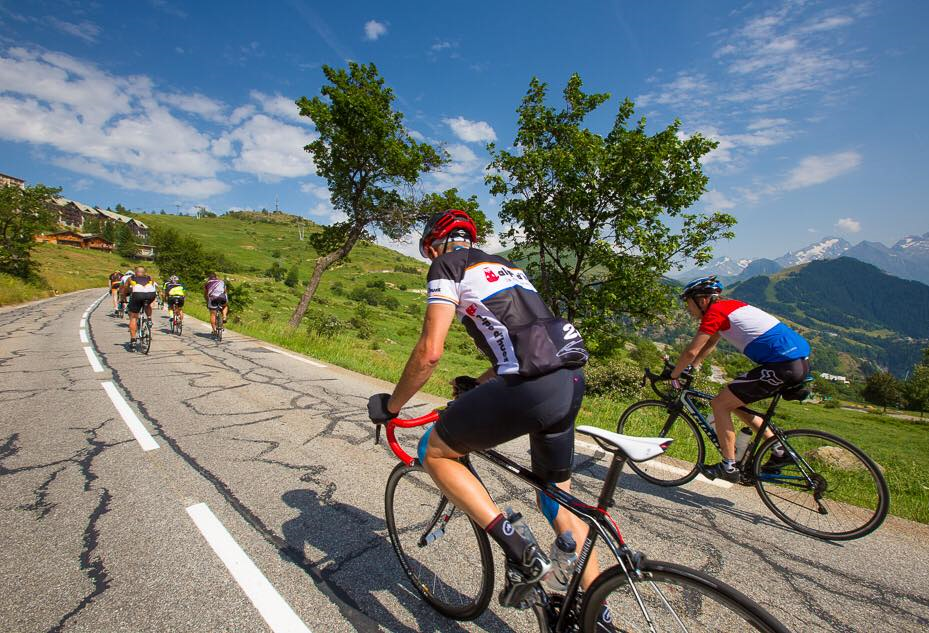
How Humango Prepares Athletes For Multi-Stage Races
Most athletes can’t afford a Tour de France-level coach nor do we need that kind of coaching for the goals we want to accomplish. A lot of us also are short on time but have events we want to compete in.
Instead, using the AI-based coaching and training app, Humango, can personally help you train to complete a multi-stage race successfully as a time-crunched athlete. Here’s how:
Foundation Training
Using the Humango app, you can set your key event or goal date. Then the system will build your periodized training plan leading up to the date based on your availability, load/recovery cycle preference, and current fitness levels.
It’ll intuitively guide you through the base phases based on your current fitness and whether you’re able to complete the given workouts so you keep improving without burning yourself out or overtraining (which also helps prevent injury).
Race-Specific Training
As you inch closer to your race date, the Humango app recognizes and adjusts your plan accordingly to prepare you for race-specific needs, like hill climbs, sprinting, time trialing, and long, steady efforts.
Depending on the stage race you’re competing in (road, mountain biking, gravel, etc.), Humango will assign you workouts that’ll help you fine-tune your strengths, even out any weaknesses, and physically prime you for your upcoming event.
Recovery Blocks
Recovery is just as essential as training for a multi-stage race. Without rest days, your muscles, joints, and mind don't have time to recover from the metabolic and mechanical stress of training, which can lead to overuse injuries.
Because of the importance of rest, Humango proactively includes recovery days so your body can repair and refuel after exercising. There’s even a check-in section on the dashboard that asks athletes to rate their mood, soreness, and fatigue. Using your check-ins, Humango adjusts your plan accordingly to make sure you’re as excited to train that day as you did on Day 1.
Well-Rounded View Of Your Current Fitness
The Humango app is hyper-personalized in that what you tell it, it adapts. If your daily check-ins consistently are bad moods and high fatigue and soreness, the app will change your training to prevent you from overdoing it.
Alternatively, if you’re consistently checking in with great moods, and no soreness or fatigue, the program will give you increasingly harder workouts so you don’t plateau.
When you connect your devices and share your metrics with Humango, the system can read your resting heart rate, heart rate variability, power, stride, cadence, etc and create programs based on what it’s understanding from your workouts.
It’s like having a coach monitoring and adjusting your training 24/7 without paying additional costs for such a high-touch relationship.
To learn more and get a special offer exclusively available through GranFondoGuide, please visit: https://humango.ai/gran-fondo-training
Starts with a free 30-day trial. No Credit Card Required (save an additional 10%)
Coach Pav
Coach Pav is an Amazon #1 New Release Author and a coach to clients who have set world records (Mark Beaumont), earned their world champion jersey (Steve Bate MBE), and won ultra-cycling events (Matt Seward and Thomas Becker).
Mostly, his clients are those riding a Gran Fondo or two, and some are even riding his personal favorite: the Maratona dles Dolomites.

